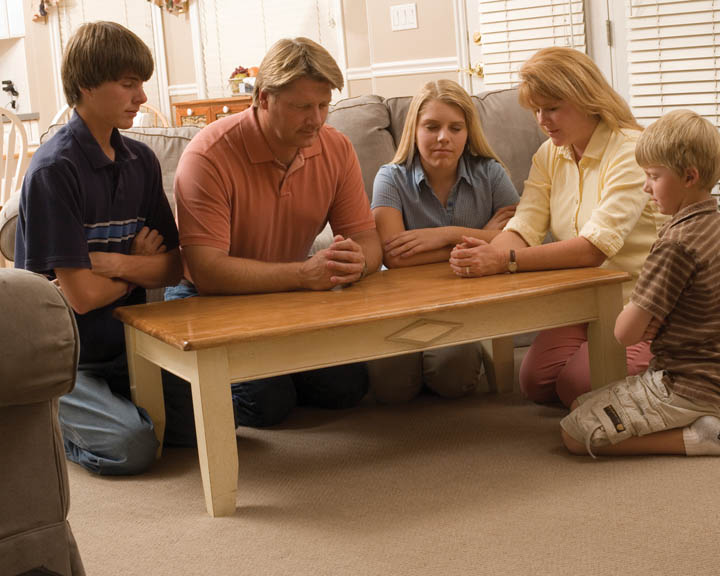We all have to eat and to provide the necessities of life for our families, and that means at least one person must go to work. Balancing work with marriage and family is not always easy. How much time away from our loved ones is necessary for the collective good? How much work time is too much? Is it even possible to strike a balance? Each family situation is unique, so there is no one hard and fast rule—unless that rule would be to pray about it.
 At different times in my life I have filled different shoes, which gives me a pretty well-rounded perspective on the subject. I worked full-time until two weeks before the birth of my first child. I was extremely blessed to be able to stay home with my children for the next 17 years. I worked part-time a couple of nights a week in law offices through those years to help my husband provide for our family, and he worked two jobs for a number of years.
At different times in my life I have filled different shoes, which gives me a pretty well-rounded perspective on the subject. I worked full-time until two weeks before the birth of my first child. I was extremely blessed to be able to stay home with my children for the next 17 years. I worked part-time a couple of nights a week in law offices through those years to help my husband provide for our family, and he worked two jobs for a number of years.
While he was working two jobs (three for a short time), our concern was that he was away from home a lot. To remedy that problem, he took the kids one or two at a time with him to help with his second job. He paid them $.50 for their help (and that’s not $.50 per hour—just $.50). His second job was to set up and take down for weddings and receptions on weekends at the small restaurant that supports our local children’s home. The kids loved going to help Dad, and it gave them precious time together. As my son began middle school, Dad’s job grew into also working security in the parking lot during the events, and that allowed for quality time for important father-son conversations.
At some point it became necessary for me to go back to work full-time. I would have loved to have stayed home another year until our youngest started kindergarten, but no matter how we tried to budget the money, it wasn’t stretching any farther. In addition, our oldest two daughters were looking towards college in a couple of years. I believe my son was about nine years old at the time. So my oldest two daughters pretty much had a stay-at-home mom, my son had some of both worlds, and my youngest daughter really had a working mom since she was only four when I went back to work.
 Most of the time while I was working, I was able to coordinate the schedule for quality time with my children. There were some things that I missed. As the only legal secretary working for a sole practitioner attorney, if there was a motion for summary judgment due, or some other important deadline, I couldn’t just take off an hour or two for a school function. Thus, I missed my youngest daughter’s kindergarten graduation. A few years later, I worked for a female attorney who completely abused my personal time. She expected me to come in early (without pay), use my lunch break to chauffer her daughter, get her car washed, pick up her dry cleaning, etc., stay late (without pay), make a mail run and a Federal Express run on my way home, and use my date night with my husband to pick up office supplies. Fortunately, I only had to work there for two years—although they were the longest two years of my life. I didn’t see much of my children during that time, and I regret not quitting that job after week one. I did not strike a good balance then. I worried too much about what my resume would look like if I quit before I had at least put in two years there. It wasn’t worth it.
Most of the time while I was working, I was able to coordinate the schedule for quality time with my children. There were some things that I missed. As the only legal secretary working for a sole practitioner attorney, if there was a motion for summary judgment due, or some other important deadline, I couldn’t just take off an hour or two for a school function. Thus, I missed my youngest daughter’s kindergarten graduation. A few years later, I worked for a female attorney who completely abused my personal time. She expected me to come in early (without pay), use my lunch break to chauffer her daughter, get her car washed, pick up her dry cleaning, etc., stay late (without pay), make a mail run and a Federal Express run on my way home, and use my date night with my husband to pick up office supplies. Fortunately, I only had to work there for two years—although they were the longest two years of my life. I didn’t see much of my children during that time, and I regret not quitting that job after week one. I did not strike a good balance then. I worried too much about what my resume would look like if I quit before I had at least put in two years there. It wasn’t worth it.
One thing that helped us in making these work/marriage/family balance decisions was a realistic approach to our finances. My husband and I don’t collect things or toys. It was never important to us to drive a fancy car, have a large home, or live in the perfect neighborhood. The latest technology was never on our wish list. We shared a vehicle for those 17 stay-at-home mom years. Our children wore hand-me-down and thrift store clothes, I never had a warm winter coat, and my husband used a lawn mower that blackened the sky because it burned oil. Toothpaste tubes were sliced open to get the very last drop, ketchup was diluted with water, and orange juice was diluted with lemonade. We ate liver and onions and told the kids it was steak.
Looking back, those very lean years were also very good years. We learned to work together for the benefit of our marriage and family. They were happy years. Our children didn’t have luxuries, but they had the necessities. More importantly, they knew they were loved.
That is the balance. You balance work and marriage by working as a team to provide the necessities of life while at the same time enjoying your family. If you don’t enjoy your spouse, and you don’t enjoy your children, then you might want to reevaluate your priorities. Are you working to provide necessities, or toys? Have you locked yourself into an abusive employer/employee corner like I did when I let my boss take advantage of me? In most cases, there is a balance that can be struck. Weigh your options as a couple, and decide the best possible balance of work for your marriage and your family.
“No other success can compensate for failure in the home.”
(Church History, President David O. McKay, Quoted from J. E. McCullough, Home: The Savior of Civilization [1924], 42; Conference Report, Apr. 1935, 116).
Tudie Rose is a mother of four and grandmother of ten in Sacramento, California. You can find her on Twitter as @TudieRose. She blogs as Tudie Rose at http://potrackrose.wordpress.com. She has written articles for Familius. You will find a Tudie Rose essay in Lessons from My Parents, Michele Robbins, Familius 2013, at http://www.familius.com/lessons-from-my-parents.







